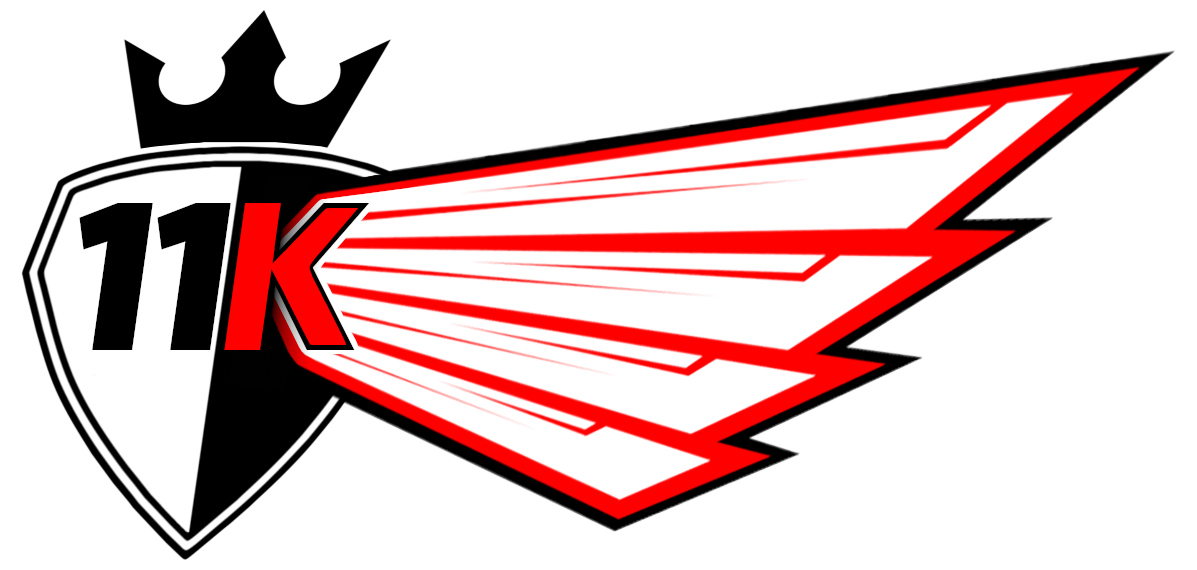11K
Issue
Logo desperately needs a redesign, and more detail is needed here eventually.
| Type | Conglomerate |
| Founding date | 1873 |
| Alternative names | Eleven Kings Anderson-Williams Co. (1873-1941) |
| Leader | Darian Williams |
| Headquarters | Avalon |
| Motto | The Dreams of Kings |
11K is a global conglomerate of conglomerates, the largest in the world. Not only is it far larger than any other multinational conglomerate on their own, 11K holds a significant stake in most of them. Its holdings are so huge and diverse that 11K finds a significant stream of revenue from nearly every sector of industry that exists, even owning the entirety of Ilmaria and acting as its de facto government. It is headquartered in Avalon.
While many have rightful concerns about the existence of a company so large it can have a monopoly over an entire country, it cannot be denied that 11K has pushed the development of new technologies to an incredible speed. 11K can be directly credited with changing the very way of life of the entire world after the invention of SensNet, a lifestyle technology product that connects directly to the brain with an always-on internet connection anywhere in the world, has no need for batteries or recharging, has both augmented reality and virtual reality capabilities, and enables individuals to defy death with the breakthrough Sublimation technology.
Assets¶
11K has significant holdings in many companies in all major industries all over the world. A complete comma-separated list of the companies 11K is significantly invested in would be enough to fill a small book. Many people, even professional analysts, have largely given up on trying to keep track of the influence and activity of 11K, and it has become commonplace for people to assume that unless they know with absolute certainty that this is not the case, all of their products and services probably have some connection to 11K.
11K accounts for nearly 5% of the entire global economy in revenue alone, and substantially more when also considering the total revenue of all other companies of which they own significant holdings.
Top industries:
- Electronics
- Information and communications
- Financial services
- Mass media
- Real estate
- Medical and pharmaceutical
- Public utilities
- Transportation
- Food and agriculture
- Advertising
- Software
- Construction
- Petroleum
- Waste management
- Retail
- Manufacturing
- Lawyers and law firms
- Education
- Entertainment
- Engineering
History¶
Originally formed as a mere partnership holding company called Anderson-Williams Co., the two men were shrewd and aggressive in their pursuit of wealth, investing hefty amounts in many businesses they saw potential in, buying others in their entirety, and even bribing some to dissolve entirely. Their methods in these early days were so close to criminal that they found themselves subject to investigation quite frequently, but they never actually committed any crimes. Their investments paid off impressively every time, and were swiftly invested into more and more diverse businesses, pioneering the conglomerate model. Over the years and as the company grew its influence exponentially, a small selection of companies had offered to work together or even merge with Anderson-Williams. By 1930, ten companies had become wholly owned subsidiaries of Anderson-Williams and over 30 other smaller companies had merged.
Anderson and Williams had an ongoing disagreement over how to conduct their business for years, and in 1933, Williams went on the offensive and forced Anderson out of the company entirely by seizing his assets in truly criminal fashion. Law enforcement never took action on this matter because Williams had bought them already, and Anderson had no choice but to leave with nothing left.
Williams had fallen ill a few years after that, and in 1940, he succumbed to his illness and was hospitalized. His youngest son, Darian Williams, succeeded him as head of the company as a dying wish. While many of the top executives had hoped to seize this opportunity to take over the business for themselves, they were shocked by how Darian was not only similar to his father, but even more business savvy. In only one fiscal year, the company assets doubled, and in 1941 the company was renamed to Eleven Kings (and later 11K) to represent the eleven directors of the company including Darian.
By the time antitrust laws were enacted, 11K was already the largest conglomerate in the world, and was easily able to continue growing even with the new restrictions. Darian’s ambitions were higher than anyone could have imagined, as with their incredible amount of resources and revenue, 11K later became one of the primary contributors for the development and construction of Ilmaria, ultimately moving their headquarters to the new country with the completion of the Avalon project.
